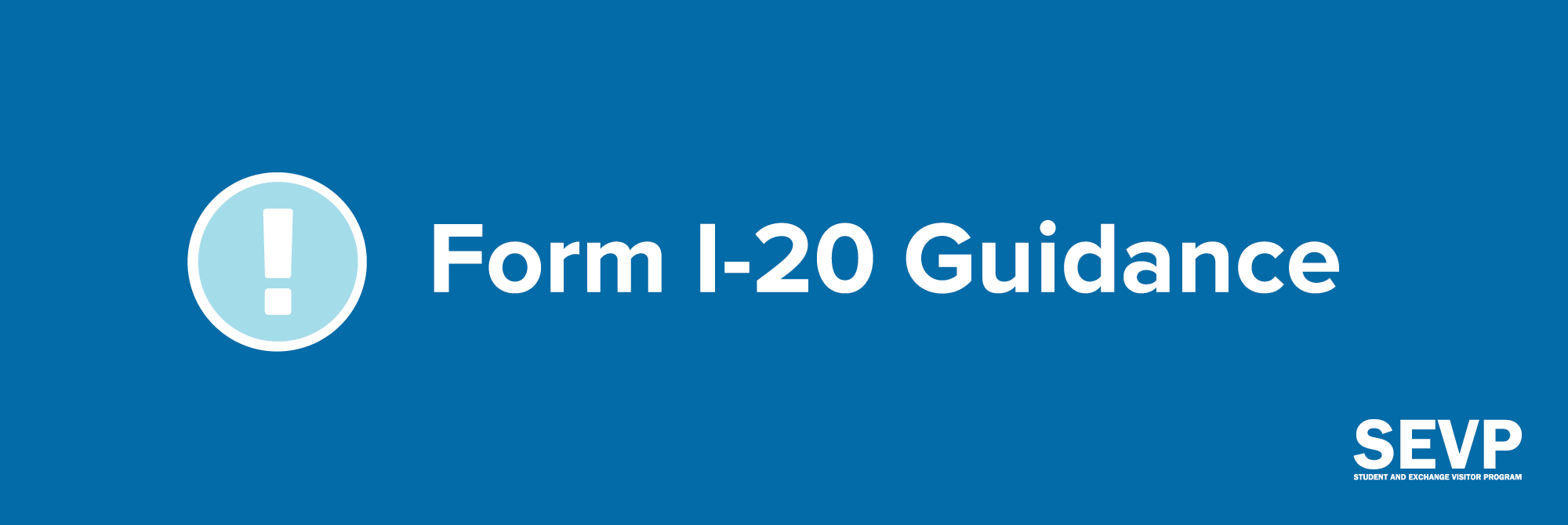The Form I-20, “Certificate of Eligibility for Nonimmigrant Student Status,” is a critical document for both nonimmigrant students who obtain an F or M visa for admittance into the United States and designated school officials (DSOs), who are responsible for issuing and maintaining the form in compliance with federal regulations.
This guide outlines what the Form I-20 is, its role throughout a student’s stay in the United States and the information students and DSOs need to know to stay compliant with federal regulations.
What Is the Form I-20?
A DSO at a school certified by the Student and Exchange Visitor Program (SEVP) issues the Form I-20 to confirm that a prospective F or M student has been accepted into an approved program of study in the United States. It serves as a key document for a student’s visa application, entry into the United States and maintenance of legal nonimmigrant student status.
The Form I-20 includes the following information:
- Personal and academic details about the student.
- Student and Exchange Visitor Information System (SEVIS) ID number for the student.
- SEVIS code for the SEVP-certified school.
- Start and end dates for the student’s program of study.
- Details on school tuition and other expenses and the student’s financial resources.
- DSO and student signatures.
Every F and M student, as well as any of their eligible dependents, must have a valid Form I-20 throughout their stay in the United States. If a DSO transmits the Form I-20 electronically to the student or their dependents, the student or their dependents should print it out and sign it. A student must present a printed copy of their signed Form I-20 at any visa interview or upon arrival at a U.S. port-of-entry.
Students: Key Functions of the Form I-20
- Paying the I-901 SEVIS Fee: Before applying for your visa or entering the United States, you must pay the mandatory I-901 SEVIS Fee. You will need details from your Form I-20, including your SEVIS ID number and school code, to complete the payment process.
- Applying for a visa: The Form I-20 is required when applying for an F-1 or M-1 student visa. Your visa must match the Class of Admission and school listed on the Form I-20. Bring a signed copy of your Form I-20 to your visa interview.
- Entering the United States: Students are allowed to enter the United States up to 30 days before the program start date listed on their Form I-20. Keep a signed copy of your Form I-20 with you during your travel to the United States, as you must present it at the U.S. port of entry. Do not pack the Form I-20 in your checked luggage.
- Maintaining legal status: Throughout your stay in the United States, the Form I-20 verifies that you are legally enrolled in a full course of study. You must have a valid Form I-20 at all times to remain in the United States under your nonimmigrant F-1 or M-1 student status.
- Applying for benefits: You may need your Form I-20 to apply for certain U.S. benefits, such as a driver’s license, a Social Security number (if eligible) and work authorization.
DSOs: Your Responsibilities Regarding the Form I-20
As a DSO, you are responsible for guiding F or M students through the nonimmigrant student process and ensuring that their SEVIS records are accurate and up to date. Key responsibilities related to the Form I-20 include:
- Issuing and signing the Form I-20 for prospective students.
- Registering students in SEVIS at the beginning of each academic session.
- Advising initial and continuing students on how to maintain their nonimmigrant status.
- Updating students’ SEVIS records as needed.
- Issuing updated Forms I-20 when there are changes in students’ personal information, program details or travel plans.
- Complying with all federal recordkeeping and reporting requirements.
Remember, only a DSO at an SEVP-certified school can issue Forms I-20 to prospective F or M students. DSOs must provide the Form I-20 directly to students or their legal guardians. Recruiters have no role in issuing or handling Forms I-20 and cannot hold on to the form for any reason.
Best Practices
For students:
- Always ensure that your Form I-20 is accurate, up to date and signed.
- Request travel signatures from your DSO at least two to four weeks before traveling outside of the United States.
- Notify your DSO of any personal or academic changes that could affect your SEVIS record or nonimmigrant student status.
For DSOs:
- Provide clear guidance to students about their Form I-20 responsibilities.
- Issue updated Forms I-20 in a timely manner.
- Maintain regular communication with nonimmigrant students to ensure their understanding of and compliance with federal rules and regulations.
For more information, visit these resources on Study in the States:





